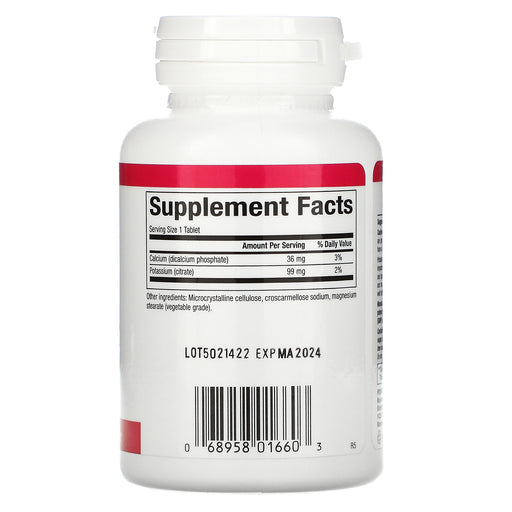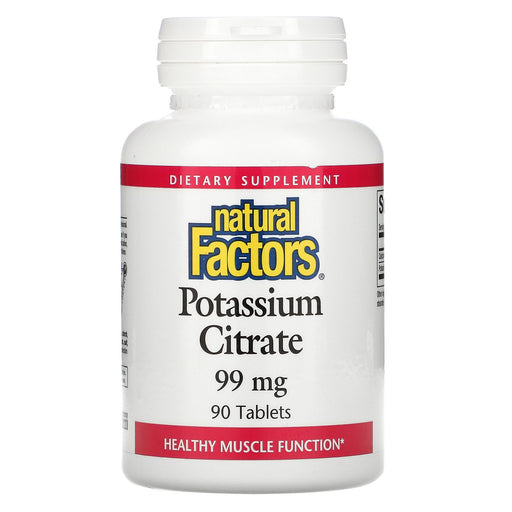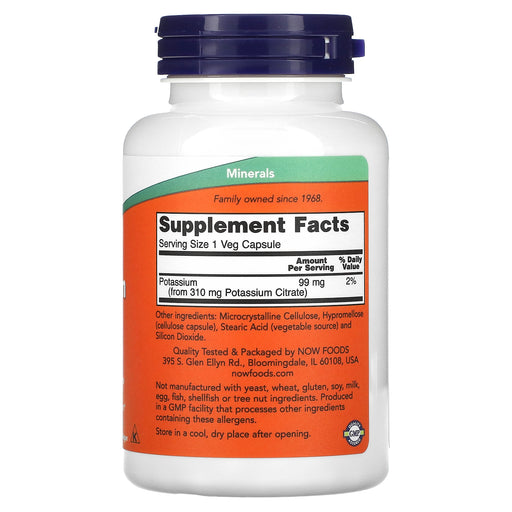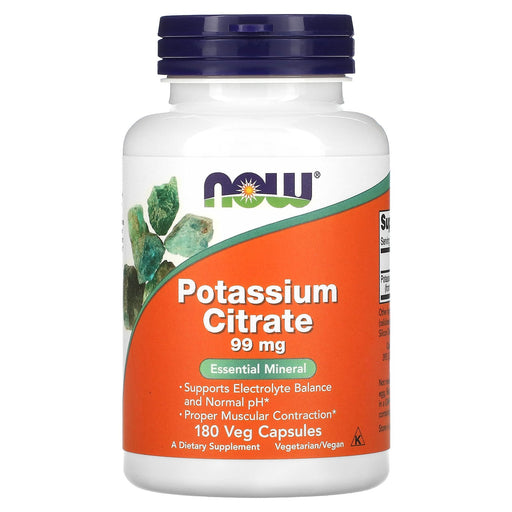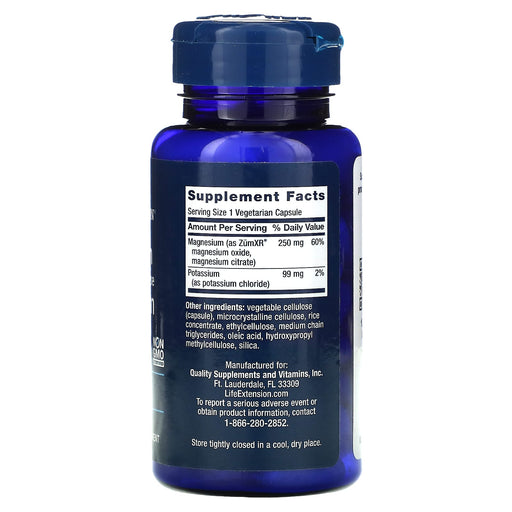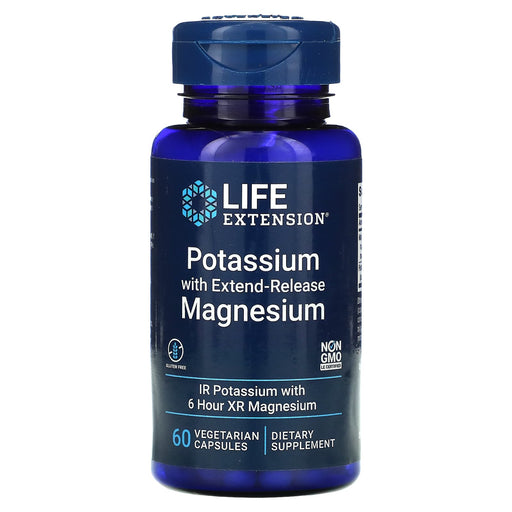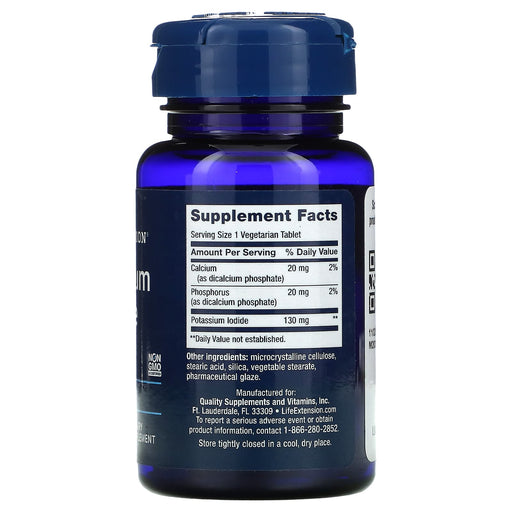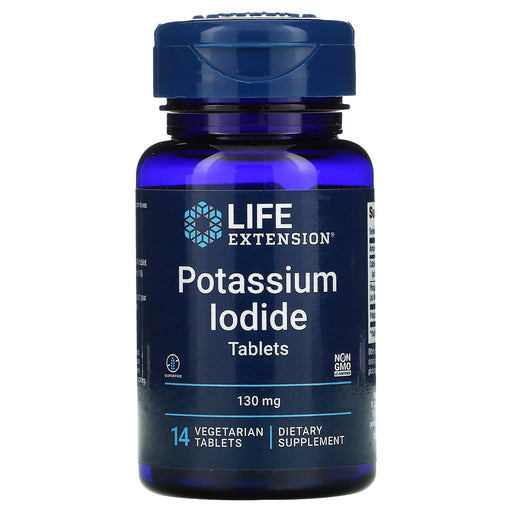
Support Optimal Health and Well-Being with Potassium Supplements
Potassium is an essential mineral that plays a crucial role in various bodily functions, from muscle and nerve function to heart health and fluid balance. Ensuring an adequate intake of potassium through diet and supplementation is vital for maintaining optimal health and well-being.
The Importance of Potassium for Health
Potassium is an electrolyte that carries out several important functions in the body, including:
- Muscle and Nerve Function: Potassium is essential for proper muscle contraction and nerve impulse transmission, supporting overall muscle and nerve health.
- Heart Health: Potassium helps regulate heart rhythm and supports healthy blood pressure levels, promoting cardiovascular health.
- Fluid Balance: As an electrolyte, potassium works with sodium to maintain proper fluid balance within the body's cells.
- Bone Health: Potassium may help support bone health by reducing calcium loss and maintaining healthy bone mineral density.
- Digestive Health: Potassium plays a role in digestive health by supporting proper muscle function in the digestive tract.
While potassium is found in a variety of foods, such as fruits, vegetables, and legumes, some individuals may benefit from potassium supplements to ensure adequate intake and support specific health needs.
Benefits of Potassium Supplements
Incorporating potassium supplements into your health routine may offer several potential benefits, including:
- Blood Pressure Support: Potassium supplements may help support healthy blood pressure levels, particularly in individuals with high sodium intake.
- Muscle and Nerve Function: Ensuring adequate potassium intake through supplementation can help support proper muscle contraction, nerve impulse transmission, and overall muscle and nerve health.
- Electrolyte Balance: Potassium supplements can help maintain proper electrolyte balance, especially during periods of intense exercise or excessive sweating.
- Heart Health: By supporting healthy blood pressure and heart rhythm, potassium supplements may contribute to overall cardiovascular health.
- Bone Health Support: Potassium supplements may help reduce calcium loss and support healthy bone mineral density, particularly in older adults.
Choosing the Best Potassium Supplement
When selecting a potassium supplement, consider the following factors to ensure you choose the best product for your needs:
- Form of Potassium: Potassium supplements are available in various forms, such as potassium chloride, potassium citrate, and potassium gluconate. Consider your individual needs and preferences when choosing a specific form.
- Dosage: Look for supplements that provide an appropriate dose of potassium based on your age, sex, and health status. Consult with your healthcare provider to determine the right dosage for your needs.
- Quality and Purity: Choose supplements that are manufactured by reputable brands, free from contaminants and impurities, and third-party tested for quality and potency.
- Absorption and Bioavailability: Consider supplements that are formulated for optimal absorption and bioavailability, such as those that include cofactors like vitamin D3 and magnesium which support potassium uptake and utilization.
- Brand Reputation: Select supplements from trusted brands with a history of producing high-quality, science-backed products and a commitment to transparency and safety.
Maximizing the Benefits of Potassium Supplements
To get the most out of your potassium supplement, consider the following tips:
- Pair with a Balanced Diet: While potassium supplements can help ensure adequate intake, they should be used in conjunction with a balanced, nutrient-rich diet that includes plenty of potassium-rich foods, such as fruits, vegetables, and legumes.
- Stay Hydrated: Drink plenty of water throughout the day to support proper electrolyte balance and overall hydration.
- Follow Dosage Instructions: Always adhere to the recommended dosage on the product label, and consult with your healthcare provider before starting any new supplement regimen, especially if you have pre-existing health conditions or are taking medications.
- Monitor Potassium Levels: If you have a history of kidney problems or are taking certain medications, it's important to monitor your potassium levels regularly and consult with your healthcare provider to ensure safe and effective supplementation.
- Store Properly: Keep your potassium supplement in a cool, dry place, away from direct sunlight and heat, to maintain its potency and freshness.
Support Optimal Health with Potassium Supplements
If you're looking to ensure adequate potassium intake and support various aspects of health, from muscle and nerve function to heart health and fluid balance, potassium supplements may be a valuable addition to your wellness routine.
Witness the potential of this essential mineral by exploring our curated selection of high-quality potassium supplements. With a commitment to purity, efficacy, and your individual needs, Health Orchard is here to support you on your journey towards optimal health and well-being.
Frequently Asked Questions about Potassium
1. Is it safe to take a potassium supplement daily?
Taking a potassium supplement daily is generally safe for healthy individuals, but it is essential to follow the recommended dosage and consult with a healthcare professional, especially if you have any pre-existing health conditions or are taking medications that may interact with potassium. The recommended daily intake of potassium for adults is 3,500-4,700 mg, and most people can meet this through a balanced diet rich in potassium-containing foods (fruits, vegetables, legumes, dairy). Potassium supplements may be necessary for individuals with certain health conditions or those taking medications that deplete potassium levels, but excessive potassium intake can be harmful and lead to hyperkalemia (high blood potassium levels), which can cause muscle weakness, irregular heartbeat, and even cardiac arrest in severe cases. If you are considering taking a potassium supplement, it is crucial to discuss the appropriate dosage and potential risks with a healthcare professional.
2. What is the best potassium supplement to take?
The best potassium supplement may vary depending on individual needs and preferences, but some factors to consider include:
- Form of potassium: Potassium chloride, potassium citrate, and potassium gluconate are common forms, with potassium citrate being gentler on the digestive system
- Dosage: Look for supplements that provide a safe and effective dose, typically 99-200 mg per serving
- Quality and purity: Choose supplements from reputable brands that follow good manufacturing practices and have been third-party tested for purity and potency
- Compatibility with diet and medications: Consider any dietary restrictions (e.g., vegan, gluten-free) and potential interactions with medications or health conditions
Some well-regarded potassium supplements include:
- NOW Foods Potassium Citrate
- Thorne Research Potassium Citrate
- Pure Encapsulations Potassium Citrate
- Bluebonnet Potassium Gluconate
Always consult with a healthcare professional before starting any new supplement regimen to ensure safety and appropriateness for your individual needs.
3. What are signs of low potassium?
Low potassium levels (hypokalemia) can cause a range of symptoms, some of which may be subtle or nonspecific. Common signs of low potassium include:
- Muscle weakness, cramps, or spasms
- Fatigue or weakness
- Constipation
- Irregular heartbeat or palpitations
- Tingling or numbness in extremities
- Mood changes, such as depression or confusion
- Nausea or vomiting
- Decreased urine output
- Dry or itchy skin
- Headaches
- Respiratory problems (in severe cases)
If you experience any of these symptoms and suspect low potassium levels, consult with a healthcare professional.
4. What happens if potassium is low?
Low potassium levels (hypokalemia) can have several effects on the body:
- Muscle weakness and cramps: Potassium is essential for proper muscle function, and low levels can cause muscle weakness, cramps, and even paralysis in severe cases
- Irregular heartbeat: Potassium plays a crucial role in regulating heart rhythm, and low levels can lead to arrhythmias and palpitations
- Fatigue and weakness: Low potassium can cause general fatigue, weakness, and decreased exercise tolerance
- Digestive problems: Hypokalemia can cause constipation, nausea, and vomiting
- Mood changes: Low potassium may contribute to mood changes, such as depression or confusion
- Increased blood pressure: Potassium helps regulate blood pressure, and low levels can lead to hypertension
- Kidney problems: Severe hypokalemia can impair kidney function and lead to kidney damage
- Respiratory issues: In severe cases, low potassium can cause respiratory paralysis and difficulty breathing
If left untreated, severe hypokalemia can be life-threatening. If you suspect low potassium levels, consult with a healthcare professional for proper diagnosis and treatment.
5. What drink is high in potassium?
Several drinks are naturally high in potassium, making them excellent choices for boosting potassium intake:
- Coconut water: A natural electrolyte-rich drink that contains high levels of potassium, as well as other essential minerals like magnesium and calcium
- Orange juice: A good source of potassium, with one cup providing around 11% of the daily recommended intake
- Prune juice: Known for its digestive benefits, prune juice is also high in potassium, with one cup offering about 15% of the daily recommended intake
- Pomegranate juice: Rich in antioxidants and potassium, with one cup providing approximately 11% of the daily recommended intake
- Tomato juice: A flavorful and potassium-rich beverage, with one cup offering around 11% of the daily recommended intake
- Milk and plant-based milks: Dairy milk and fortified plant-based milks (soy, almond, oat) are good sources of potassium, as well as other essential nutrients like calcium and vitamin D
Incorporating these drinks into a balanced diet can help support healthy potassium levels, but it is essential to consume them in moderation and consider overall sugar and calorie intake.
6. Is potassium bad for the kidneys?
Potassium is not inherently bad for the kidneys; in fact, it plays a crucial role in maintaining proper kidney function. The kidneys help regulate potassium levels in the body by excreting excess potassium through urine. However, in certain situations, potassium can be harmful to the kidneys:
- Kidney disease: People with impaired kidney function may have difficulty excreting excess potassium, leading to a buildup of potassium in the blood (hyperkalemia). In these cases, a low-potassium diet and close monitoring of potassium levels may be necessary.
- Certain medications: Some medications, such as ACE inhibitors, angiotensin receptor blockers (ARBs), and potassium-sparing diuretics, can increase the risk of hyperkalemia, especially in people with kidney problems.
- Excessive supplementation: Taking high doses of potassium supplements without medical supervision can lead to hyperkalemia, which can be dangerous for the kidneys and overall health.
For most healthy individuals, consuming potassium from a balanced diet is safe and beneficial for kidney function.




